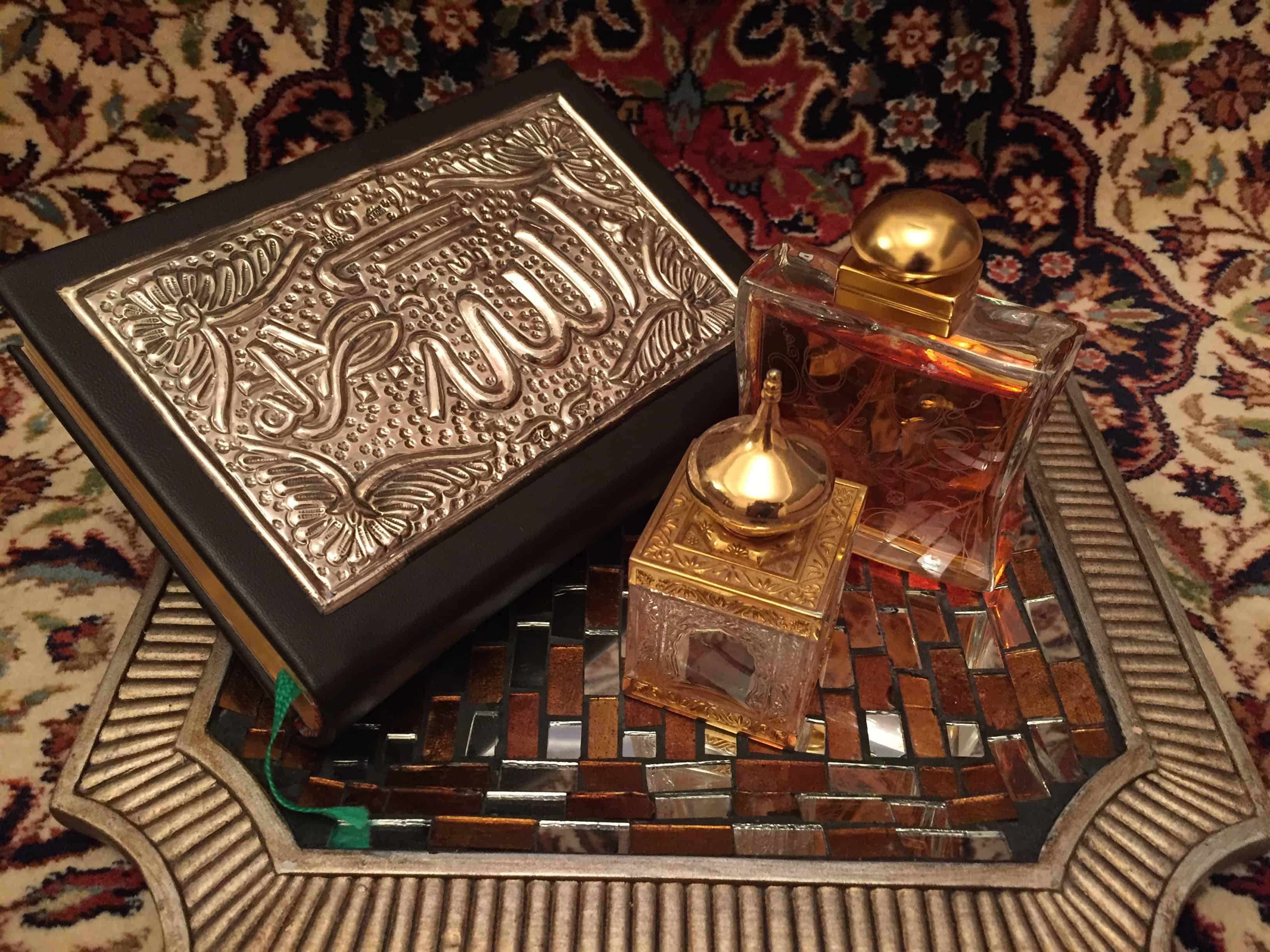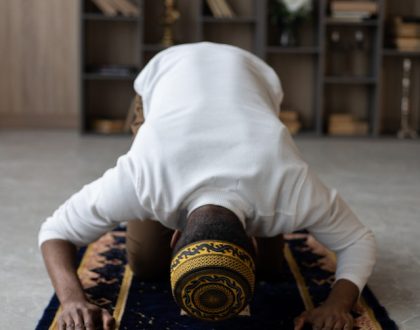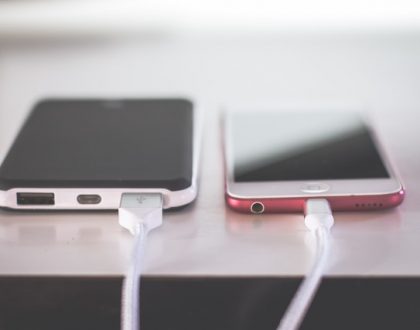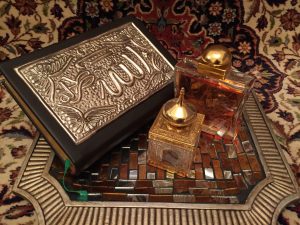(1:1-7) What to remember in our daily dialogue with our Lord

What are the key points to bear in mind when reciting Surah Fatiha?
The richness of Surah Al Fatiha cannot be over-estimated, as it sets out what we believe (aqeeda) as well as what we need to do (action). Poised delicately between hope and fear, through this surah, we glimpse the vastness of Allah’s love as well as the potential devastation of letting ourselves down and facing His wrath. In seven brief ayahs Allah Almighty gives us spiritual, psychological and physical healing, guidance and direction.
The main points to remember are:
- Surah Fatiha is a dialogue between us and our Creator in which He has taught us how to communicate with Him, giving us the words to praise and worship Him.
- He establishes that He provided us with everything and what we now need from Him to live successfully in dunya, and the guidance to reach our final destination (akhirah) safely.
- We have the concept of tawheed – the fact that we turn to Allah Almighty alone. We are shown His greatness and our insignificance.
- Our identity and relationship with Him is made clear – we are His worshippers and His slaves, indebted to Him for all we have, and in need of every good that He lavishes on us.
- We turn to Him with utter humility and immense gratitude, understanding that our purpose in this life is to connect all our actions back to Him as He is the One to whom we belong and to whom we will finally return. It is imperative that we align all our thoughts and actions with His commands.
- We have been given the duty to extend the love, generosity and mercy that Allah Almighty has shown us to all our fellow creatures, as we make our way to the final judgement in which all mankind will be sorted into categories and be held accountable for all we did.
Failure to understand our mission leads to the eternal disaster which will befall all those who turned away from the straight path, were ruinously misguided. We are not the first on this journey, so we have been warned of from the mistakes of others.
Our Dialogue with Allah Almighty
In the Hadith Qudsi, Allah Almighty has said: ‘I have divided the prayer (salah) between Myself and My servant into two halves, and My servant shall have what he has asked for.
When the servant says: ‘Al-hamdu lillahi rabbi l-alamin’, Allah (Almighty) says: ‘My servant has praised Me.’
And when he says: ‘Ar-rahmani rahim’, Allah (Almighty) says: ‘My servant has extolled Me’
And when he says: ‘Maliki yawmidin’, Allah says: ‘My servant has glorified Me’ – and on one occasion He said: ‘My servant has submitted to My power.’
And when he says: ‘Iyyaka na budu wa iyyaka nastaeen’, He says: ‘This is between Me and My servant, and My servant shall have what he has asked for.’
And when he says: ‘Ihdina ssiratal mustaqim, siratal ladhina an amta alayhim ghayril maghdubi alayhim wa la dalleen’, He says: ‘This is for My servant, and My servant shall have what he has asked for.’
(Sahih Muslim)
Surah Fatiha enables us to emulate Allah’s jamali attributes (qualities associated with compassion) so we can attain personal development and foster community spirit, wishing goodness for everyone. In Surah Noor, Allah Almighty says:
Say, ‘Obey Allah and obey the Messenger; but if you turn away – then upon him is only that [duty] with which he has been charged, and upon you is that with which you have been charged. And if you obey him, you will be [rightly] guided. And there is not upon the Messenger except the [responsibility for] clear notification. (24:54)
Thus we also have the example of the Blessed Prophet (peace be upon him) to emulate particularly in his relationship with the Qur’an, the Fatihah and our salah. Combining the theory and practice, as embodied by the Prophet (peace be upon him), is the true meaning of hidayah I’anah. May we all love and follow the Prophet (peace be upon him) to unlock the guidance of the Qur’an so that he may lead us along the Siratul Mustaqeem to bliss in our final eternal home. Ameen.
Linked through our imaan (faith), we are united with all our fellow travellers on this journey towards the akhirah (hereafter) and we are inspired to purify our intention, and boost our reliance (tawakul) on Him.
The Prophet (peace be on him) said, When the Imam says: ‘Ghayr-il-maghdubi ‘alayhim wa la ad-daalleen’ (Qur’an 1:7), then you must say, ‘Ameen’, for if one’s utterance of ‘Ameen’ coincides with that of the angels, then his past sins will be forgiven. (Bukhari)
Recommended Posts

How do I perform salatul tasbih?
July 14, 2023

Salah is your imaan-charger
April 11, 2023


